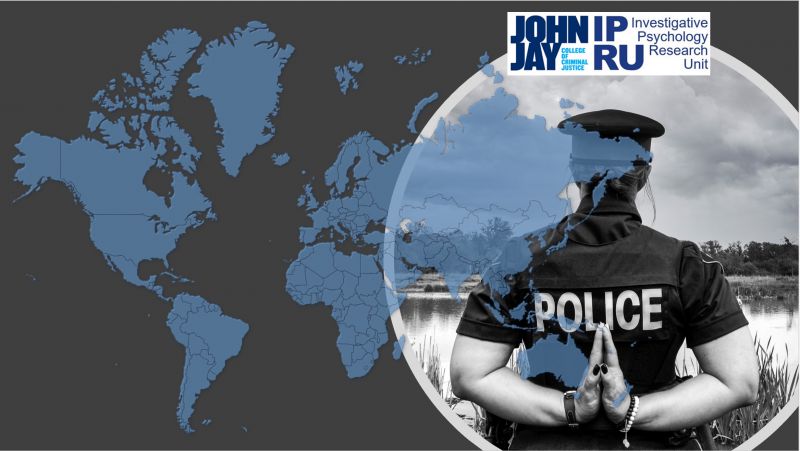RESilience Training Program
First-responders, law enforcement, military personnel, forensic psychologists, and other professionals in the broader caring professions, often work with challenging and high risk populations and in situations such as mental health and crime, and are often entering jobs that require long or shift hours in high risk and high stress situations such as prisons, hospitals, law enforcement and the courts, and working with clients facing emotional, psychological and legal challenges. It is well documented that professionals within these fields often suffer high levels of stress, exhaustion and burnout due to the emotional nature of their jobs. Practitioners in these fields therefore need high levels of resilience skills and resources in order to withstand the demands of these types of careers, protect their own well-being. Healthy and flourishing people lead to professionals who lead with a disposition and energy that has a positive impact on their clients and organizations, and as such function at a higher level of effectiveness as professionals, and in addition possess the toolkits to advise their clients and organizations to flourish.

Training For First Responders
The Investigative Psychology Research Unit (IPRU) is committed to provide evidence-led and culturally relevant training to First Responders. We have been a leader in the field of developing and providing training based on what works.
Training in this area focuses on acquisition and fine-tuning of critical skills that allow first responders to become resilient practitioners. Participants will gain valuable insights on the science of resilience and engage in practical exercises to build all 4 key areas of resilience skills; Mental, Emotional, Physical, Spiritual. These skills will help practitioners sustaining a flourishing life of purpose, avoid or get out of burnout, and renew their energy.
Individually tailored 1/2 day - 5-day training courses provided for organizations.
Course Flyer: Law Enforcement & First Responder RESilience Training
Video of 4 Areas of Resilience
An article on burnout and resilience in law enforcement
Other Trainings for Practitioners & First Responders
For inquiries or more information, please contact us: IP_info@jjay.cuny.edu
Research Supporting Our Trainings
The Investigative Psychology Research Unit (IPRU) aims to build an evidence base to support practice-informed and evidence-based resilience training for law enforcement and other first responders. More information on our current projects below, as well as webinars, publications and talks, can be found on our RESILIENCE RESEARCH page.
First Responder Psychological Trauma: A systematic review providing an overview of what different groups of first responders (police, corrections, fire, etc) meet in terms of adversity on the job, and the reported types and prevalence levels of psychological impact (eg PTSD, Compassion Fatigue, Burnout). MORE DETAILS
Law Enforcement Burnout: A systematic review of the scientific literature on Burnout in law enforcement. Review includes almost 150 published between 1983-2024 across 32 countries, including over close to 150,000 officers. MORE DETAILS
Law Enforcement Resilience: A systematic review of the scientific literature on Resilience in law enforcement. Review includes close to 80 articles published between 2006-2024 across 19 countries, including a total of almost 40,000 officers. MORE DETAILS
Chicago Police Mental & Emotional Resilience Training (RES-CPD): A research project based on training developed and delivered by the Investigative Psychology Research Unit (IPRU) to 11,5000 officers at Chicago Police in 2021 and another program to 10,500 officers and civilian members of the force in 2023. The training programs included a 3-6 month post-training implementation program, to allow officers to practice the learnt skills in their day-to day personal and professional lives. The impact of the training was evaluated and the results were used to 1) Identify most at-risk groups; 2) Obtain feedback on when and how officers implement training; 3) Evaluate training impact on officer resilience & wellness; 4) Inform building of evidence-based training. MORE DETAILS
New Jersey Police Resiliency Training Program (RES-NJ): A research project is based on The New Jersey Resiliency Training Program, delivered out of the New Jersey Division of Criminal Justice in the Office of the Attorney General. The program was delivered to 35,000 New Jersey police officers and aims to provide a healthier environment within the organization, promote better relations with officers in the community, and quell the current epidemic of law enforcement suicides, and aims to change not only the impact on individual officers, but also aims to change organizational culture to support increased officer wellness. The research connected with the program surveyed officers using a number of key measures prior to the resilience training, and 6 months post training to measure the overall impact of the training on officer wellness. MORE DETAILS
Israel First Responders, Resilience & Strength During Wartime & Terrorism (RES-Oz): Following the October 7th 2023 terrorist attacks on Israel, Israeli first responders have been working under the extreme conditions of terrorist attacks and war. Experts in Israel currently show that PTSD levels are increasing to critical levels for both first responders, and the general population. The RES-Oz project focuses on first responders who operate during times of war and terrorism. The project centers on Oz (עוז) the Hebrew word for Inner Strength. The focus centers on how deep connection to Meaning and Purpose provides the inner strength that allow first responders to stay resilient. The project is collecting video testimonies of first responders, their stressors, and the nature of the inner strength that is allowing them to stay resilient. The project is additionally developing a training program centered on inner strength and Meaning and Purpose, aimed to supporting those who support others. MORE DETAILS
Training Partners
Dr Salfati has provided in-depth training courses internationally to numerous law enforcement agencies, as well as other agencies in the broader criminal justice and health fields. Some of the most recent include:
- FBI National Academy
- FBI Behavioral Science Unit
- FBI Behavioral Analysis Unit
- US Army Military Police School
- US Federal Bureau of Prisons
- New York City Police (NYPD)
- New Jersey Police & Attorney General's Office
- Chicago Police (CPD)
- UK Police
- Justice Clearing House
- Moderna